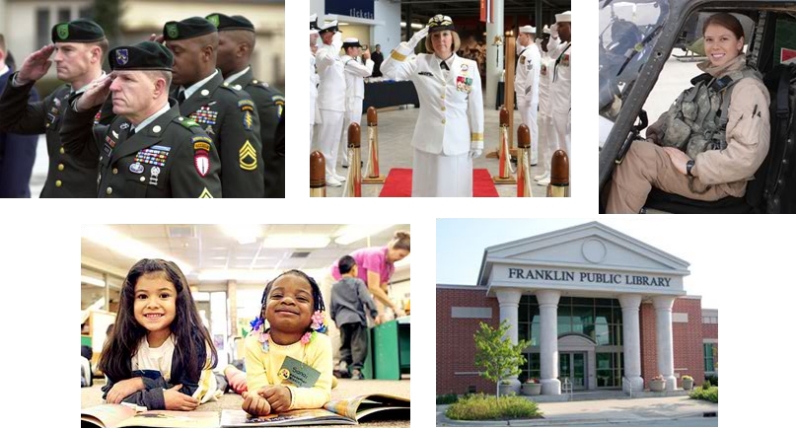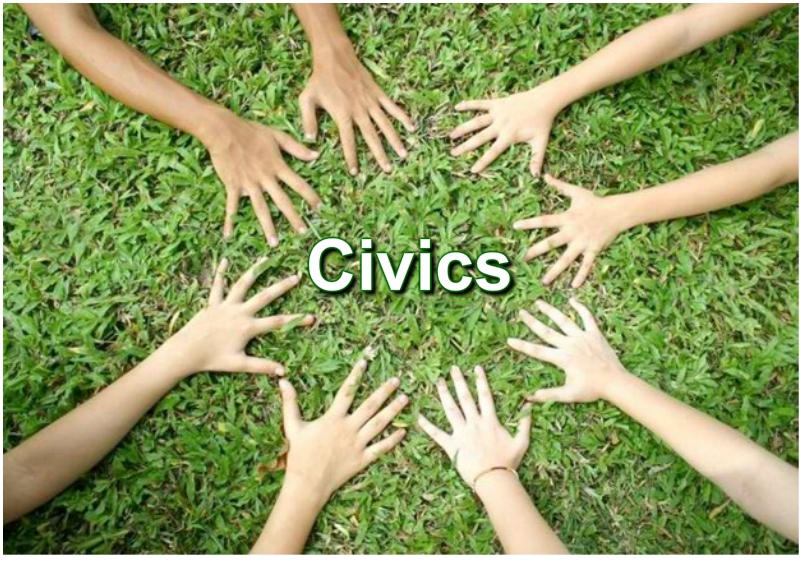Dunn’s Civics > Dunn
Part 1 - Grades 7-8
Building civic consciousness among students.
Introduction by Andy Zvara (“Mr. Z”)
I would like you to consider this quote by P. P. Claxton, Commissioner of The Secretary Of The the Interior Bureau of Education, Washington, June 1:
“From the inception of the tax-supported public school systems in the United, one of the most important functions has been to give the instruction and training necessary for the intelligent performance of the duties of citizenship. Indeed, this work of preparation for citizenship has been and is still one of the strongest arguments for making education a function of the State and in justification of the levying of taxes for the support of schools. As the government and industrial and social life become more democratic, the importance of this function of the schools becomes more evident and necessary and the means of giving the necessary instruction and training becomes keener and more general.”
That’s June 1, 1915!
In that same year, Arthur Dunn, who was then Special Agent In Civic Education Bureau Of Education, wrote in Civic Education in Elementary Schools as Illustrated in Indianapolis in United State Bureau of Education, Bulletin, 1915, No. 17, Whole Number 642, page 34: “Whether the children who are now undergoing this training for citizenship will in reality be efficient citizens 10 or 20 years hence cannot, of course, be foretold. But there is apparently ample evidence that they are better citizens now, and moreover, that the present civic life of the city is appreciably affected by it.”
How does the “instruction and training necessary for the
intelligent performance of the duties of citizenship” in
Dunn’s day compare with civics education
National Civics Overview
1. Civics is the study of how we govern ourselves.
2. Self-governance, the great promise of the American Constitution, is based upon the ability and willingness of citizens to learn the facts of life of our nation and to exercise their self-governing powers to enhance the general welfare.
3. For over three generations, Americans lost that willingness and by so doing devalued and diminished the civics education of our youngest citizens, robbing each generation of the capacity and wisdom to preserve the foundations of self-governance.
4. The renewal of the American promise of self-governance must begin with a commitment to take full advantage of the new means of communication available to our current generation of citizens, to enable them to take a leadership role in the reestablishment of this promise.
5. Traditional methods of teaching civics are based upon students learning the sources of governmental power, and the theory and reasoning that underpin those sources. Open Civics – what we are calling “National Civics” – asks teachers in the elementary grades to integrate civics into the core subjects. In grades 7-12 we ask students first to observe and define the elements of their civic environment, and secondly to study this environment, independently or collaboratively, using the new media tools at their disposal.
6. National Civics encourages and supports students in all grades in exercising their power to honor and enhance the elements of governance in their schools and to address any civic injustice they uncover in their community as their imagination, intelligence and experience warrant.
7. Both philosophically and methodologically, National Civics is a 21st Century version of the civics texts of Arthur William Dunn, whose vision and commitment to American civic learning has been lost for almost a century.
8. Dunn’s strategy in the teaching of civics can be summarized: to empower and guide young people, both individually and collectively, to explore and participate in their own civic environment.
Techniques of Investigative Journalism
A two-year civics course for grades 7 and 8. The core of the course is the revision of Arthur Dunn’s civics texts, based upon the students’ own experience in his/her community This would be accomplished by the use of eLearning and student-produced video, and the full range of web tools combined with the techniques of investigative journalism and “open source intelligence.”
Web-based technology has opened up education around the globe to the point where anyone can learn anything from anyone else, anywhere and at any time.
Open Source Intelligence/Open Courseware
Use eLearning and student-generated video, classroom civics lessons and the entire “computer cloud” of social media, video games, podcasts, apps and wikis to spearhead a program to have students study, discuss on line, and redraft Dunn’s community civics books in today’s terms over a one or two year period.
Following Dunn, the student enquiry will begin where the young citizen begins “by reference to his (or her) own observation and experience.”
It is our family that lays down the law when we are young, sets the rules and defines our rights and responsibilities.
It is our family that first shows us how to value teamwork and participate in community life, whether it’s at home or at school, in soccer or in Little League.
It is our family that protects us from harm: from bad food and water and dangerous traffic and toys.
In other words, it is our family government that keeps us together, establishes justice at home, insures domestic tranquillity, promotes our welfare and secures the blessings of liberty for us.
And these words are almost exactly those we find in the Preamble to the U.S. Constitution, on which our government is based.
What our family government does for its members, our local government does for our community, by providing us with a range of services. These services may include sanitary inspections for restaurants, the organization of police and fire departments, and public works such as sewage treatment and disposal. Today, all of these services are under threat due to economic constraints.
What our local government does for our community is in turn reflected at the national level.
In fact, our government at all its levels does a great deal more than this. It provides us with soldiers and sailors and pilots to protect us; schools and libraries to educate us...
...medical services to keep us healthy; parks to give us fresh air and places to explore; roads and bridges for our family to drive on; a postal service to deliver our letters; and many, many other things for our “general welfare.”
But all this starts at home.
Like everything else worthwhile in a democracy, civics is grassroots, it starts with the family, spreading into communities throughout the nation.
Watch: 14-Year Old Activist Destroys TV Host on Monsanto, GMO Labeling
AlterNet
Brad Blog
By Brad Friedman
August 13, 2013
Watch her take on the TV host who bad-mouthed opponents of Monsanto and their GMOs.
This 14-year old Canadian girl, Rachel Parent, is tremendous. Watch her clean the clock of the TV host who bad-mouthed opponents of Monsanto and their GMOs and those who support the "Right to Know" campaign to require genetically modified foods to be labelled as such.
She's just fantastic. My favorite part (and there were many), was when the jackass host accuses her of being a "shill" for "extremists"...just moments after he basically accused her of wanting to kill millions of children with her advocacy.
Color me very impressed with this young lady...
14 year old Rachel Parent debates Kevin O'Leary on the issue of Genetically Modified Food Donate to the cause at Rachel's website: http://www.gmo-news.com

















